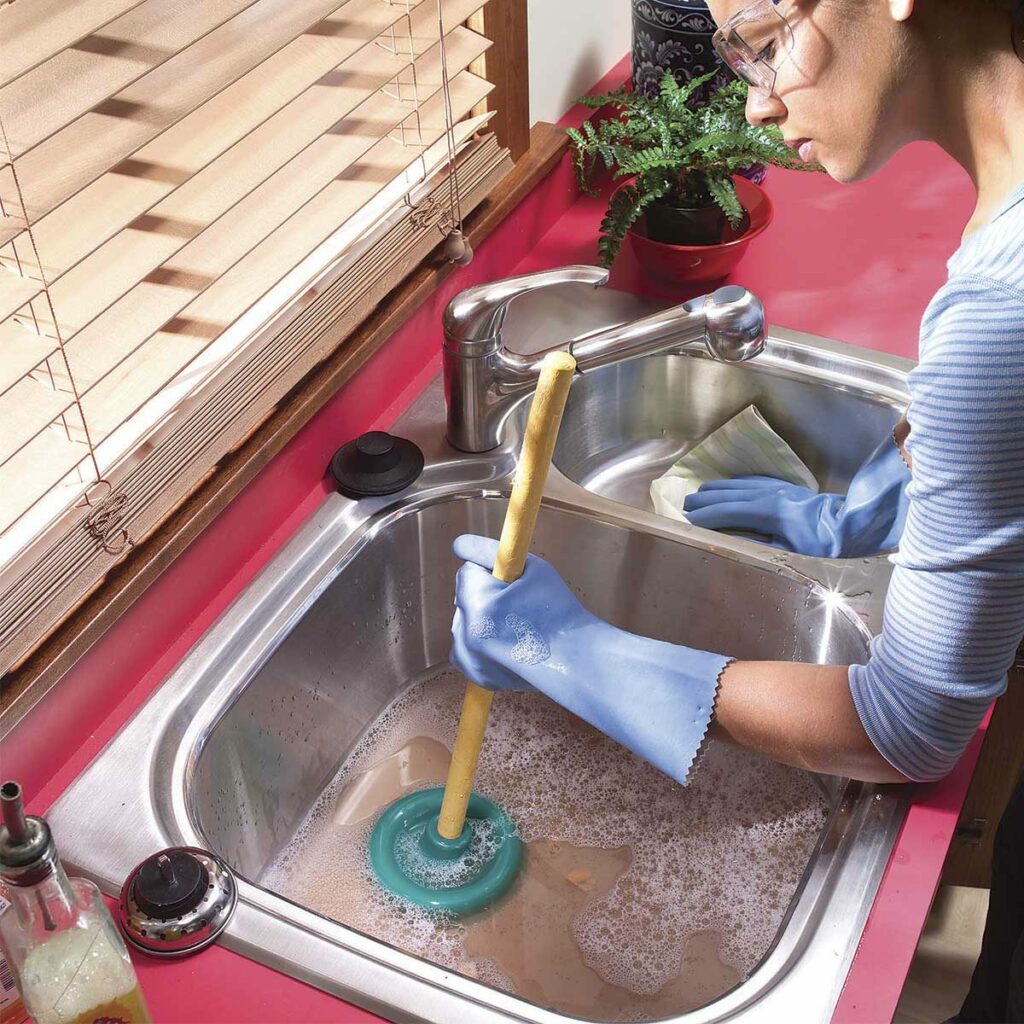A clogged sink is a common household problem that can cause a lot of frustration and inconvenience. Fortunately, many clogs can be easily prevented with a little bit of knowledge and effort. In this article, we will discuss the 5 most common causes of a clogged sink and how to prevent them.
- Hair
Hair is one of the most common causes of a Clogged sink, especially in the bathroom. When we shower or wash our hair, strands of hair can easily get caught in the drain and accumulate over time. This buildup can eventually create a blockage and prevent water from draining properly. To prevent this, you can use a drain cover or strainer to catch any hair before it goes down the drain. It’s also a good idea to regularly clean out the drain cover or strainer to ensure it doesn’t become clogged itself.
- Soap scum and residue
Soap scum and residue can build up over time and create a blockage in the drain. This is especially common in the bathroom sink, where soap is used on a daily basis. To prevent this, you can try using less soap or switching to a liquid soap, which is less likely to leave behind residue. Regularly cleaning the sink with a mild abrasive cleaner can also help to prevent buildup.
- Food scraps and grease
In the kitchen sink, food scraps and grease are the most common culprits of a clogged drain. When food scraps and grease are washed down the drain, they can accumulate and create a blockage. To prevent this, you should scrape food scraps into the trash or compost and pour any leftover grease into a container and dispose of it in the trash. It’s also a good idea to run hot water down the drain for a few minutes after washing dishes to help prevent buildup.
- Foreign objects
Foreign objects, such as jewelry or small toys, can accidentally fall down the drain and create a blockage. To prevent this, it’s important to be mindful of what you are washing or rinsing in the sink. Keep small objects away from the sink and make sure to double check the drain before running water down it.
- Old pipes
Old pipes can become clogged or damaged over time, which can lead to a blockage in the sink. If you’ve tried all of the above methods and are still experiencing issues with your sink draining, it may be time to have your pipes inspected by a professional plumber. They can determine if there are any underlying issues with your plumbing that need to be addressed.
Clogged sink can be a major inconvenience, but it’s often preventable with a little bit of effort. By being mindful of what you are putting down the drain and taking steps to prevent buildup, you can keep your sink flowing smoothly for years to come. And if you do experience a clog, don’t hesitate to call a professional plumber to help you resolve the issue quickly and effectively.
What To Do When Your Sink Won’T Drain: Diy Tips And Tricks
The Science Behind Why Sinks Get Clogged And How To Avoid It

